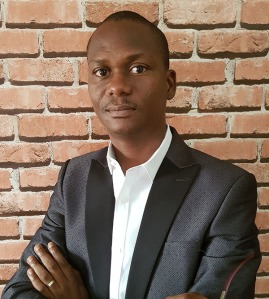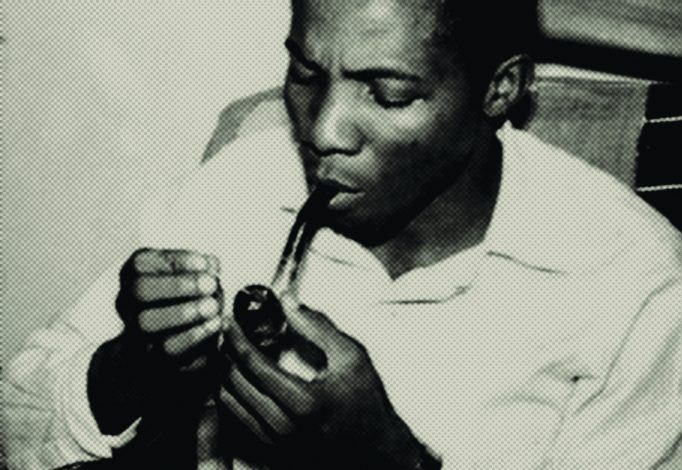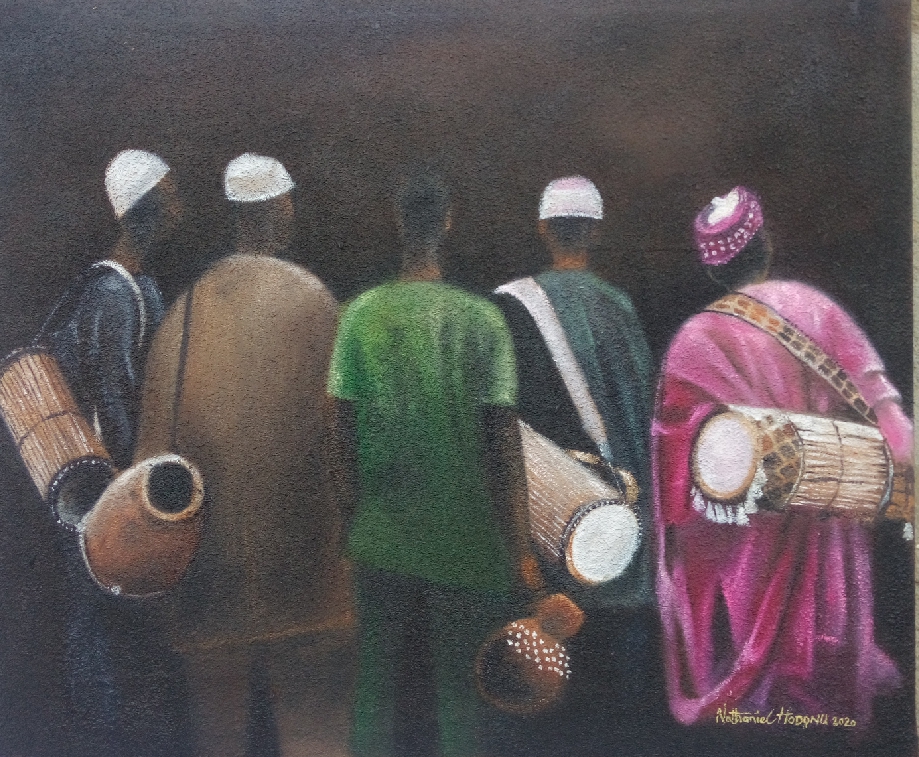Why the novel, In the Name of our Father, reminds us of our collective pains

By Nehru Odeh
History is a nightmare from which I am trying to wake – James Joyce
When a literary work tells not just a personal story but also that of our collective experience, not only does it enchant us, holding us in its grip, we feel part of it. We are not just drawn to it, we feel our collective pains so much so it burbs up in our memories. And we cannot but ask ourselves some rhetorical questions: Did we really go through all these? How did we do it? And what are the lessons learned?
That is how Olukorede S. Yishua’s debut novel, In the Name of our Father, held me in thrall. And I am still trying to come to terms with the grim realities that stared us all in the face at a time, realities which the novel vividly portrays. And one cannot but ask oneself whether we really went through that trauma. Indeed, if what we all went through is anything to go by – like what James Joyce’s famous line tells us – history is a nightmare from which we are trying to wake.
Set in Lagos of the 90s, the novel tells a gripping story of how Justus Omoeko, a journalist’s search for self-fulfillment lands him in a labyrinthine world filled with surprises, twists, and shocks. Bored of his job as a journalist, Justus decides to revert to the writing career he had put on hold.
He makes up his mind to finally publish his novel, Angels Live in Heaven, a fictional work exposing the rotten underbelly of our nation, a popular clergyman’s moral decrepitude, his deceptions and liaisons with the dictator General Sani Idoti, who will do anything to remain in power. But the power that is, the clergyman, will do anything to stop him from publishing the novel. Then follows threats, mysterious letters flying here and there, set-ups, and then the clampdown
However, for Justus, that novel turns out to be the beginning of the end, the genesis of his unending troubles. The so-called clergyman, Prophet J.T. Jeremiah, in a desperate move, will do anything to save his name, while Gen, Idoti will do anything to remain in power. At the end of the day, Justus is framed up and implicated in a coup plot because of an article he had written entitled, The Coming Coup. The truth is, Justus’ piece is satirical. “It calls the attention of the government to the plight of the people, and that if they are pushed to the wall, they will have no choice but to turn and fight.” It does not in any way foretell a forceful overthrow of the government. Yet he is implicated in the coup plot and arrested.
Justus not only goes through horrifying, Kafkaesque experiences- set-ups, heartbreaks, he is jailed for life; though that is later commuted to 15 years imprisonment and released after his death at the hands of three Indian prostitutes. ”The beginning of the end began for me that day in my two-bedroom apartment,” Justus says, and he opens the Pandora Box.
Doesn’t this yarn remind you of a certain period in our nation’s history? Doesn’t this mind-boggling story give you a familiar sense of the traumatizing period we all went through? Doesn’t this story document that dark period in our nation’s story? The answer indeed is yes. And that is why no doubt the author has succeeded in writing not just about himself but also our collective experience and trauma. Many who witnessed that period can relate to that.
Still, the strange familiarity of all that transpires in this experimental novel, this breath of fresh air, beckons, however blood-curdling – the shocks, bewilderment, political repression, harassment, torture, voodoo politics, cultism, religious manipulation, greed and avarice defining that dark era in our nation’s history. We were – and still are – part of that history, a history that is traumatic and unforgettable. The truth is, Justus tells not only his own story but also that of ours, our collective pains, trauma, and losses. Because, as the late Biafran leader, Dim Chukwuemeka Odumegwu Ojukwu, would say, we are all involved.

A fascinating thing about this novel, a postmodern work written as metafiction, is that it is multi-layered – a story within a story. The author himself is a self-conscious narrator in the labyrinthine world he has created but is beyond him, a seemingly meaningless world in which he is trying to find meaning. That is not only experimental enough, but it deals with a universal existential theme: man’s place in a solitary and meaningless world.
The author uses the same technique – a story within a story – that John Fowles used in The French Lieutenant’s Woman and John Barth in Chimera. The reader is led through the labyrinthine and sometimes blood-chilling twists and turns of the novel, which speaks volumes about the Kafkaesque world we are in, a world horrendous and filled with uncertainties. Nobody is sure of what happens next. That element of surprise, of keeping the reader in suspense, indeed makes the work unputdownable.
And then the unforgettable characters. Justus the writer, himself is a fictional character; Alani, who out of desperation metamorphoses into Prophet J.T Jeremiah and fleeces the dictator; Pastor David, the dubious voodoo clergyman who initiated Jeremiah into a cult; the female characters, who in order to survive in a world filled with uncertainties and heartbreaks will do anything to survive. They include Justus’s lover, Tosin, as well as the prophet’s wives, Nkechi and Rebecca. Rebecca, a prostitute-turned wife, is barren, while Nkechi, who is actually supposed to be pregnant for the prophet and living a fabulous life in London, turns out to have taken in for another man and dumps the prophet when the chips are down.
Justus, with all his travails, reminds us of unforgettable fictional characters in our literary space like Josef K, Michael K, Mersault and Azaro; anti-heroic characters who wade through life in an absurd world they cannot explain, battling against forces beyond them. Justus’s experience is also similar to the one Wole Soyinka documented in his prison memoir, The Man Died.
Still, the opening sentence of the novel gives one an idea of what to expect, the harrowing drama that defines our collective experience. An experimental novel, it is written in both the first and second person singular. It starts with one of the best opening sentences ever and that gives the reader the idea of what to expect in the compelling work of fiction: “The center begin not to hold for me when I decided to mount another pedestal. Until then, journalism was what I chose to pursue; but after a while, something also began to pursue me.” What is that thing that began to pursue Justus? One may ask. But that is the stuff the novel is made of- its ability to hold the reader in thrall till the end.
Written in prose as clear as crystal, In the Name of our Father tells us about the shenanigans of power, the banality of evil, and the extent people can go to perpetuate themselves in power and achieve the machinations of their evil. And like what Antonio Gramsci, the Italian political theorist, says they make use of State Repressive Apparatuses such as the army, police, secret services to carry out their nefarious acts. We have soulless security operatives who will do anything in service of the dictator and the reluctant ones forced to act against their conscience.
“Anybody who wants to unseat the C-in- is an arch-enemy of the nation. The C-in- C is the God-sent leader of this country, and God has anointed him to rule forever,” Biliaminu Thompson, a security operative tells Justus. This is a familiar trope that overzealous agents of dictatorial regimes use.
Another salient aspect of the novel is that it is not just fiction but faction. The author makes no bones letting the reader know that he is referring to not just a period in our nation’s history but also to some notable dramatis personae. The reader sees those real-life characters come alive in the novel, and that not only gives it some kind of authenticity but also a major strength. It makes the story not only believable but also convincing. The characters are strangely familiar to us. For instance, General Sani Idoti in the novel is General Sani Abacha in real life, while General Iya Odogbolu is real-life General Oladipo Diya. Taking a look a look at the names of both fictional characters, one can see that the author hints at those major political actors.
Still, the author’s sociological imagination is highly commendable. Not only has he been able to turn a personal story into a collective one, but he has also proved, as American sociologist, C. Wright Mills, would say that the things will do are shaped by the situation we are in. The individual does not just exist in isolation but is affected by socio-political forces beyond him. This author’s capacity to shift from the personal to the social, from one perspective to the other, makes this book a must-read. And at the end of the day, Justus, the narrator tells not just his own story but that of us all. I recommend this unputdownable novel to everyone who wants to know about the hell we went through, our collective trauma and what has brought us thus far. It is indeed a breath of fresh air.
– Nehru Odeh journalist and, writer, is the author of The Patience of an Embattled Storyteller, a book that foresaw the adoption, rape, and murder of females by terrorists in Nigeria. He writes for the news.




